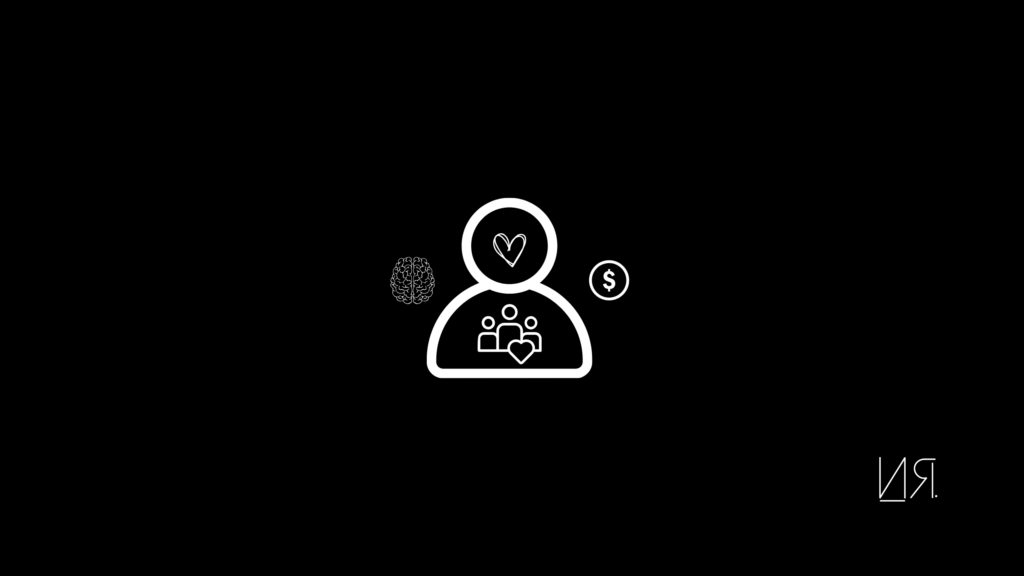Sales is king but it sits on the throne of these three forces.
I loved the smell of fresh magazines.
In the 2010s, as an engineer flying out of the Austin airport, I’d have a breakfast burrito in one hand, while I scanned through the bookstore’s magazines.
My favorites were the business and entrepreneur ones.
On flights over the green heartland of America, I’d read about people starting businesses that blew up after the 2008 recession. It filled my mind with entrepreneurial fantasies. While I avoided spilled taco on paper, what I couldn’t see on those two-dimensional pages was the depth of what laid underneath those stories.
The struggle.
The resilience.
The unspoken failures.
I jumped off my corporate cubicle aircraft.
But I should have grabbed a parachute first.
Because after a full decade of self-employment, where my failings outweigh the wins, I now know what entrepreneurship is really about.
Freedom fantasy:
People want autonomy but fear freedom.
A lot of us, deep down, want to be told what to do. Waiting for a teacher to give us the homework, a pat on the back, and clear next steps.
We do the same in jobs we’re funneled into. Get on the treadmill. Keep it moving forward. A few people step off, but most that do, within a few months of uncertainty jump back on. Scared to work through to their freedom, their destiny.
The reality is self-employment, entrepreneurship, and artistic autonomy is in your future. You will die internally before they put you in a grave if you accept that working for (and not with) someone is the goal of life. I’m not saying quit your job, you can use my VCH model here to start building something on the side.
The point here is that in the automation era and as a knowledge worker, you can monetize the knowledge you’re giving an employer. You just have to learn to be an entrepreneur to go get it yourself.
These require certain unique skills of creating and communicating, building and selling, writing offers and closing deals.
But there’s a more important game that powers the game of entrepreneurship.
It’s an unseen force.
Entrepreneurship is more about the intangible skills than anything else.
The 3 unseen forces of entrepreneurship:
In November 2019, I was in Seattle just before a conference trip to Dubai.
I told my friends “yo, if I don’t close any deals at this conference, I might have to fold up this business.” At the conference, I shook hands, exchanged business cards, and a month later I was in my QuickBooks, shaking my head. “Damn. Zero deals closed.” I told another friend a few months later, “2019 was bad man. 2020 can only be better.” Three months later, we were all locked down for the pandemic.
It wasn’t sales that kept me going. It was something else.
When you understand the hidden forces that fuel entrepreneurship, it will prepare you for your inevitable path of self employment. It will help you gain clarity, develop autonomy which is real wealth, and live a more well-rounded life.
Here are the three forces:
1. Emotional regulation
While I waited for a prospective client to join a sales call, I checked my emails filled with rejections.
“Not interested.”
“Take me off your list.”
“Don’t ever email me again.”
While I read, I got a ding for a new email from the person I was supposed to be on the call with. “Sorry I can’t make the call, something came up.” I had to force a smile and type: “No problem, can we move this to the same time tomorrow?” Knowing deep down that person was gone for good. You don’t know about ghosting until you run a business. And it’s just 5:33 AM in the morning.
You think this is a game? (DMX voice). Entrepreneurship is not some fairy tale land of investments, exits, and Forbes list mentions.
It’s realer than a movie reel.
People will show you what they really think about you.
They’ll
- stand you up.
- waste your time.
- cancel meetings with you.
This is not reserved to prospective customers. Friends and acquaintances will ask you questions that will make you ponder for days. Questions like “so how’s THAT business of yours going anyways?”
Your emotions will be up and down like the stock market with Donald Trump running wild in the oval office.
A major skill that you have to develop is emotional regulation. The person that can keep it cool the longest wins.
One sure way to regulate your emotions is to journal, meditate, and exercise.
I do all three.
You have to find yours.
2. Psychological constructs
One of the best lessons I learned at Stanford Business school was not about supply chain, marketing, or operations.
It was a short sentence by an investor:
“Most of the successful entrepreneurs I know are actually not huge risk-takers, they are more risk-minizers”
I heard that and my mind did a full 360, it almost snapped off my neck.
All I had heard until that point was:
“risk it all,”
“go big or go home,”
“burn all boats if you want to be successful”
What I learned that day and through experience is that successful entrepreneurs take calculated risks, learn as quickly as possible, and apply their learnings to reduce the risk of doing that same thing again. With each step they are chipping away at the risk of venturing into the unknown.
Psychological constructs like “risk-minimizing” are very important for entrepreneurs. They provide mental shortcuts on how to be more effective.
Another construct is “avoid confirmation bias.” Notorious B.I.G said this in a more slick way in his Ten Crack Commandments: “never get high on your own supply.”
Most people that venture, have an idea, build legs around the idea, then get funneled into echo chambers of their idea, until they can’t think objectively. This has happened to me one too many times.
Don’t get high on your own supply.
Another is “don’t fall for the enthusiasm trap” in which you get enamored by every bright new idea, abandoning each one, once the shiny new one is available. The shiny object syndrome.
Be a risk minimizer, avoid confirmation bias, and don’t fall for the enthusiasm trap. These are just a few of mine.
Find mentors to keep you accountable and build your constructs.
3. Social engineering
That pick pen is seared in my head.
Months into the 2020 pandemic, my stuttering business revenue had officially crashed to zero.
I hosted webinars. I wrote on LinkedIn. Nothing. For five months, not a single deal.
Whosssa. Breathe. (See step 1)
Anyways, I told one of my mentors – a low-key British dude in his 60s who had sold two of his companies. I asked him: “should I just go get a job and do the business on the side?”
He said: “eff that, go sell.”
He raised a pink pen in his hand on the zoom call and waved it at me: “Nifemi, just take your offer like this pink pen, and say hey do you want this? Huhn? Yes or no. If they don’t, screw them, keep it moving. You have to be confident and consistent. Sales is just like going to the gym.”
I followed his advice. I waved my “pink pen” in the form of a proposal. In three months, I had the biggest revenue year of my 4-year business.
Sales is the most important job of an entrepreneur and it’s really about persuasion.
You have to persuade people all the time.
Persuade customers to buy, investors to invest, strangers to give you feedback, smart people to become teammates, your team to get stuff done, other entrepreneurs to become mentors.
Persuade, convince, persuade. That’s the name of the game.
Persuasion requires social engineering to understand the benefit your “pink pen” brings to people’s lives and how they make decisions, usually in one of the two forms of thinking – system 1 and system 2 thinking.
System 1 is fast, associative and emotional.
System 2 is slow, deliberate, and cognitive.
In the game of influence, you want to match the system thinking of your audience.
For instance with system 1 audience, you might say “I feel this is good for you,” while for system 2, you say “I think this is good for you.”
These are just a few nuances.
Become a better social engineer and become a better entrepreneur.
The inside game:
In the era of artificial agents and intelligence, entrepreneurship is in your future, even if it’s within a large company.
There’s a lot going on under the hood of entrepreneurship.
I’ve found that it’s a more emotional, psychological, and social game than I expected when I started. Sales is still king but emotional regulation, psychological contracts, and social engineering make up the throne.
Learn these and you might just have a fighting chance.
I hope you venture forward.
Yours truly,
Nifemi



